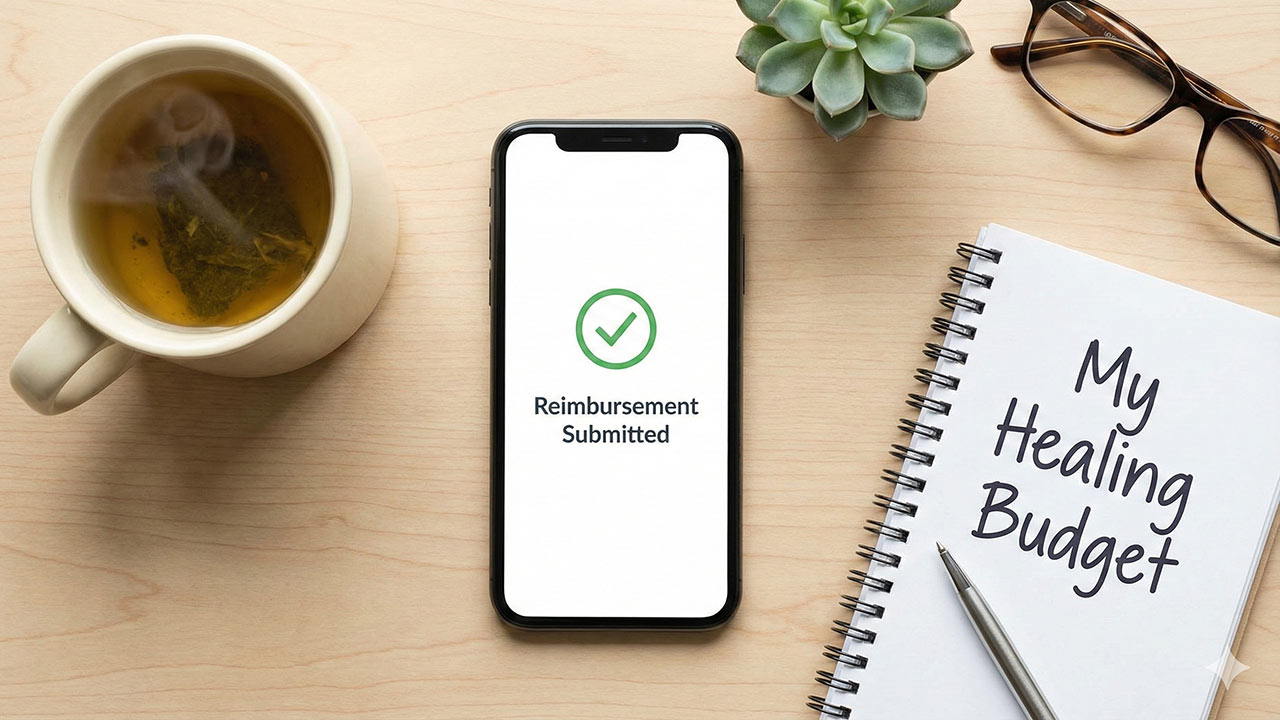Navigating the complexities of mental health can be daunting, but with the right resources, support, and guidance, the journey becomes more manageable. In a world where mental health concerns are increasingly recognized, accessing reliable resources is vital for fostering resilience and promoting well-being. Join us as we explore the wealth of mental health resources available and discover how they can serve as a lifeline for individuals on their path to wellness.
Understanding Mental Health Resources
Understanding mental health resources is essential for anyone navigating the complexities of mental wellness. These resources encompass a wide range of services, tools, and support systems designed to promote mental well-being and address mental health challenges. By familiarizing oneself with available resources, individuals can make informed decisions about their mental health care and access the support they need to thrive.
Types of Mental Health Support Available
- Counseling and Therapy Services: Professional therapists and counselors offer one-on-one sessions to address a wide range of mental health concerns, providing personalized support and guidance.
- Support Groups: Peer-led or professionally facilitated groups bring together individuals facing similar mental health challenges, offering a safe space for sharing experiences, coping strategies, and mutual support.
- Hotlines and Crisis Intervention: Confidential phone lines staffed by trained volunteers or professionals provide immediate support and assistance to individuals experiencing mental health crises or emotional distress.
- Online and Digital Platforms: Websites, apps, and digital tools offer a variety of resources, including self-help courses, virtual therapy sessions, support forums, and mental health assessments.
- Community-Based Programs: Community centers, religious organizations, and grassroots initiatives host support groups, workshops, and events focused on mental health awareness, education, and advocacy.
Importance of Accessible Resources
Access to mental health resources is crucial for promoting well-being and preventing mental health crises. However, barriers such as cost, location, stigma, and language can limit access for many individuals. Ensuring that mental health resources are accessible to all—regardless of socioeconomic status, geographical location, or cultural background—is essential for addressing disparities in mental health care and promoting equitable access to support services.
Online and Digital Mental Health Platforms
Online and digital mental health platforms have become increasingly popular as convenient and accessible resources for mental wellness. These platforms offer a variety of tools, such as therapy apps, self-help courses, virtual support groups, and informational websites, that can be accessed anytime, anywhere. With features like anonymity, flexibility, and affordability, online mental health platforms provide valuable resources for individuals seeking support and guidance.
Community-Based Support Networks
Community-based support networks play a vital role in promoting mental health and resilience at the local level. These networks may include community centers, religious organizations, grassroots initiatives, and volunteer groups that offer peer support, social connections, and resources for individuals facing mental health challenges. By fostering a sense of belonging and solidarity, community-based support networks contribute to the overall well-being of individuals and communities.

Counseling and Therapy Services
Counseling and therapy services are cornerstone resources for addressing mental health concerns and promoting emotional well-being. Licensed mental health professionals, such as psychologists, counselors, and social workers, offer a range of therapeutic modalities to help individuals explore their thoughts, feelings, and behaviors, develop coping strategies, and navigate life’s challenges. Whether through individual, couples, family, or group therapy, counseling services provide personalized support tailored to each individual’s needs.
Hotlines and Crisis Intervention
Hotlines and crisis intervention services offer immediate support and assistance to individuals experiencing mental health crises or emotional distress. Staffed by trained volunteers or professionals, these services provide confidential and nonjudgmental support, counseling, and referrals for individuals in need. Whether facing thoughts of suicide, experiencing a panic attack, or coping with overwhelming emotions, hotlines and crisis intervention services offer a lifeline of support and connection during difficult times.
Self-Help Strategies and Techniques
Self-help strategies and techniques empower individuals to take an active role in managing their mental health and well-being. These strategies may include mindfulness and relaxation techniques, journaling, physical activity, creative expression, and healthy lifestyle habits. By incorporating self-help practices into daily routines, individuals can enhance their resilience, reduce stress, and cultivate greater emotional balance and self-awareness.
Mental Health Apps and Tools
Mental health apps and tools offer convenient and accessible resources for managing mental wellness and tracking progress over time. From mood tracking and meditation apps to cognitive-behavioral therapy (CBT) tools and virtual therapy platforms, there is a wide range of apps available to support various aspects of mental health. With features such as personalized recommendations, progress monitoring, and peer support communities, mental health apps can complement traditional therapy and support individuals in their journey toward greater well-being.
Educational Resources and Informational Websites
Educational resources and informational websites provide valuable insights, guidance, and evidence-based information on mental health topics. These resources may include articles, fact sheets, videos, podcasts, and online courses covering a wide range of mental health issues, treatment options, and self-care strategies. By equipping individuals with knowledge and understanding, educational resources empower them to make informed decisions about their mental health and seek appropriate support when needed.
Peer Support Groups and Forums
Peer support groups and forums offer a sense of community and connection for individuals facing similar mental health challenges. Whether online or in-person, these groups provide opportunities for sharing experiences, offering mutual support, and learning from others who have walked similar paths. By fostering empathy, validation, and solidarity, peer support groups play a valuable role in promoting recovery, resilience, and social connection among individuals with mental illness.
Workplace Mental Health Programs
Workplace mental health programs are initiatives implemented by employers to support the mental health and well-being of their employees. These programs may include employee assistance programs (EAPs), mental health awareness training, access to counseling services, flexible work arrangements, and policies promoting work-life balance. By creating a supportive and stigma-free work environment, employers can help reduce stress, improve morale, and enhance productivity among their workforce.
Government and Nonprofit Initiatives
Government and nonprofit initiatives play a crucial role in promoting mental health awareness, providing resources, and advocating for policy changes to support individuals with mental illness. These initiatives may include public awareness campaigns, funding for mental health services, research grants, and legislative efforts to expand access to care. By collaborating with stakeholders and community partners, government and nonprofit organizations can work together to address mental health disparities and promote equitable access to support services.
Integrative and Holistic Approaches to Wellness
Integrative and holistic approaches to wellness recognize the interconnectedness of mind, body, and spirit in promoting overall health and well-being. These approaches may include complementary and alternative therapies such as acupuncture, yoga, meditation, nutrition counseling, and mindfulness practices. By addressing the physical, emotional, and spiritual dimensions of health, integrative and holistic approaches can support individuals in achieving balance, resilience, and vitality in their lives.

Financial Assistance for Mental Health Services
Financial assistance programs provide support for individuals who may face financial barriers to accessing mental health services. These programs may include sliding-scale fees, low-cost or free counseling services, medication assistance programs, and health insurance subsidies for mental health care. By ensuring that cost is not a barrier to treatment, financial assistance programs help improve access to care and promote equitable opportunities for individuals to prioritize their mental health.
Culturally Competent Resources for Diverse Community
Culturally competent mental health resources are tailored to meet the unique needs and preferences of diverse communities. These resources may include culturally specific counseling services, support groups, and educational materials that respect and honor individuals’ cultural backgrounds, beliefs, and traditions. By acknowledging and addressing cultural factors that influence mental health and help-seeking behaviors, culturally competent resources promote inclusivity, trust, and effectiveness in mental health care.
Family and Caregiver Support Resources
Family and caregiver support resources offer assistance and guidance to those caring for loved ones with mental illness. These resources may include education and training programs, support groups, respite care services, and counseling for family members and caregivers. By providing support and resources to caregivers, these programs help reduce caregiver stress, enhance coping skills, and strengthen family relationships while promoting the well-being of individuals with mental illness.
Resources for Specific Mental Health Conditions
Resources for specific mental health conditions offer targeted support and information for individuals diagnosed with particular disorders. Whether it’s depression, anxiety, bipolar disorder, schizophrenia, or PTSD, there are specialized resources available to address the unique needs and challenges associated with each condition. These resources may include treatment guidelines, self-management tools, peer support groups, and advocacy organizations dedicated to raising awareness and advancing research for specific mental health conditions.
Advocacy Organizations and Campaigns
Advocacy organizations and campaigns work to raise awareness, promote policies, and advocate for the rights of individuals affected by mental illness. These organizations may engage in public education efforts, legislative advocacy, and community organizing to address stigma, expand access to care, and improve mental health outcomes. By amplifying the voices of those with lived experience and mobilizing grassroots support, advocacy organizations play a vital role in driving systemic change and advancing mental health equity.
Conclusion
At Resilient Mind Counseling, we understand the importance of accessing the right mental health resources for your well-being journey. Whether you’re seeking counseling services, support groups, or online tools, we’re here to support you every step of the way. Remember, you’re not alone in this journey. Take the first step towards a healthier mind today.
Contact Resilient Mind Counseling to explore your mental health support options and embark on your path to resilience and wellness.














